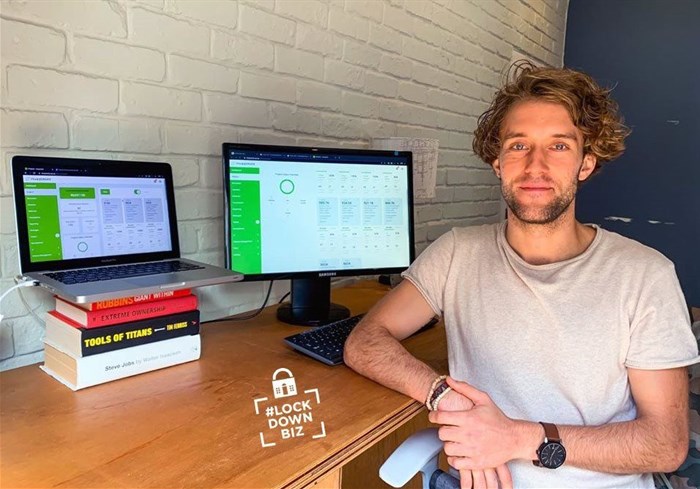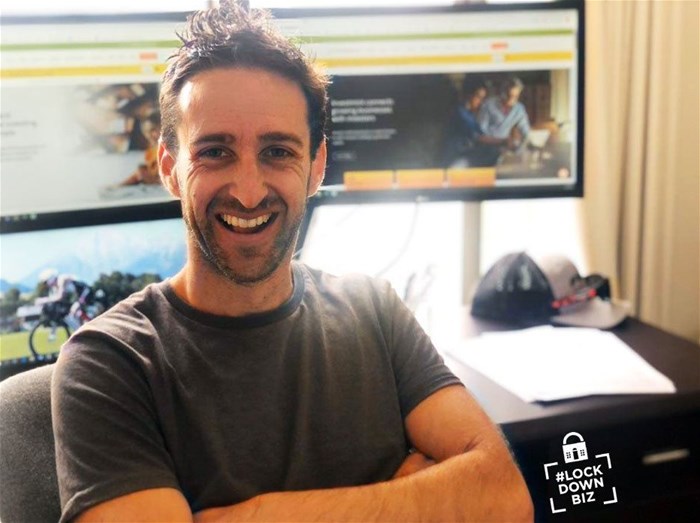
Top stories






LifestyleWhen to stop Googling and call the vet: Expert advice on pet allergies from dotsure.co.za
dotsure.co.za 2 days
More news



















Investmint is an online platform that connects businesses in need of loans with investors looking to invest by means of a loan, in other words, a platform that acts as a marketplace between the borrower and the loaner.
Gareth Price and Chris Bruchhausen shares how the coronavirus has had an impact on this unique, user-friendly and convenient tool committed to accelerating the SME economy in South Africa.
At Investmint, we are very fortunate in that our business platform is based entirely online, which means that we are able to operate our business from anywhere. We also, fortunately, have a relatively small team which meant that it was easy for us to quickly shift to a remote work environment.
A large part of our preparation before the lockdown was actually spent making sure that our clients are getting themselves ready from an operational and financial perspective to ensure that they are in the best possible position to weather the storm.
We operate a platform that is a marketplace that connects investors with SME’s who are looking for funding in the form of short term working capital loans.

Given the decline in economic activity, more businesses are looking for funding to cover any shortfalls in cash flow during this period so we have seen a dramatic increase in requests for funding on our platform.
On the other side of our marketplace are the investors who provide capital to these businesses. As was to be expected, there was a decrease in investor activity as people, in general, are wanting to hold onto their cash a bit more to ensure that, like many businesses in South Africa, they too have enough liquidity to ride out this economic storm.
We are in a position where we are confident we will be able to endure this economic downturn and come out thriving at the other end.
At the moment, and at least for the coming months, we do not feel as if we are going to need financial assistance (in the form of loans for example from the recently announced stimulus package).
As a business, what we would like to do hopefully in the not too distant future is start raising some equity funding so that we can allocate capital towards various components of our platform and business strategies so that we can reach exponentially more SME’s and help them gain access any funding that they may need.
 If you are able to operate, what steps are you taking to continue operating?
If you are able to operate, what steps are you taking to continue operating? As we already mentioned, our business is fully digital meaning that we have been able to continue to operate and provide the services our platform offers to our clients. We have had to take a more hands-on approach though with our SME client base in that we have been actively providing advice and helping them in any area of their businesses as is needed in order to ensure that they are best equipped and prepared to deal with this crisis.
Thankfully our team is relatively small and everyone is used to working from home (we have a couple of days a week where our team works remotely) so the measures that we put in place were more around ensuring that there are clear communication channels and there are regular check-ins and updates to ensure everyone is on the same page and everyone knows what they need to be working on.

An example of this would be the daily afternoon check-in where we communicate via a short slack message the most important things that happened throughout the course of the day. We also make regular use of Google Hangouts calls (usually around three times per week) where we can discuss anything that requires a thoughtful and analytic approach.
Yes, absolutely! We regularly send out personal emails to the investors of how the SME’s are doing and ensuring that we instil confidence in them that we are working our hardest to ensure that these businesses come out thriving at the end of this. We also send out mailers to the entire investor base every 10 days or so notifying them of any developments that they should be aware of.
In terms of our SME clients, as mentioned above, we have taken a much for hands-on approach with them and that has resulted in us having regular phone calls, if not every day then at least once every couple of days, to ensure that we are doing everything we can to help them.
In terms of assistance, we have taken a hands-on approach with our SME client base to help them wherever we can.
This can be anything from operational advice, to how best they can manage their cash flow over the coming months.
 What do you predict the next 6 months will be like?
What do you predict the next 6 months will be like? While we are generally optimistic at Investmint, we are also acutely aware of the economic ramifications of this virus and how exponential economic downswing will have lasting economic effects for many months or even years to come.
We do believe however that for the people who do have some capital for discretionary spending, once the lockdown is lifted (either partially or entirely) and businesses are able to open again, there will be a shift in consciousness in peoples spending habits whereby it is far more likely that people (in South Africa for example) will want to support local businesses and products as opposed to acquiring products and services from large multinational conglomerates.
Loyalty to proudly South African brands will inevitably increase.
 Now is the time to innovate and experiment. What is Investmint doing?
Now is the time to innovate and experiment. What is Investmint doing? We believe that in order to grow into a successful business you need to be innovating and experimenting constantly, and not just during isolated time periods.
Since our inception (which was around 10 months ago) we have constantly been looking at ways to improve our platform from a technological standpoint as well as ways in which we can better serve our clients with new and/or improved products and services, and we will continue to adopt this approach into perpetuity.
The biggest lesson has been acquiring a deeper understanding of the fragility of our economic systems. As a society, we all need to ensure going forward that we do not adopt a reactive approach to dealing with crises from a business perspective and instead adopt a proactive one whereby we are continuously preparing ourselves (even during good times) for massive downswings in economic activity.
This way the economic ramifications of a crisis are lessened to a certain extent as people are more equipped (operationally and financially) to deal with unfavourable economic conditions.